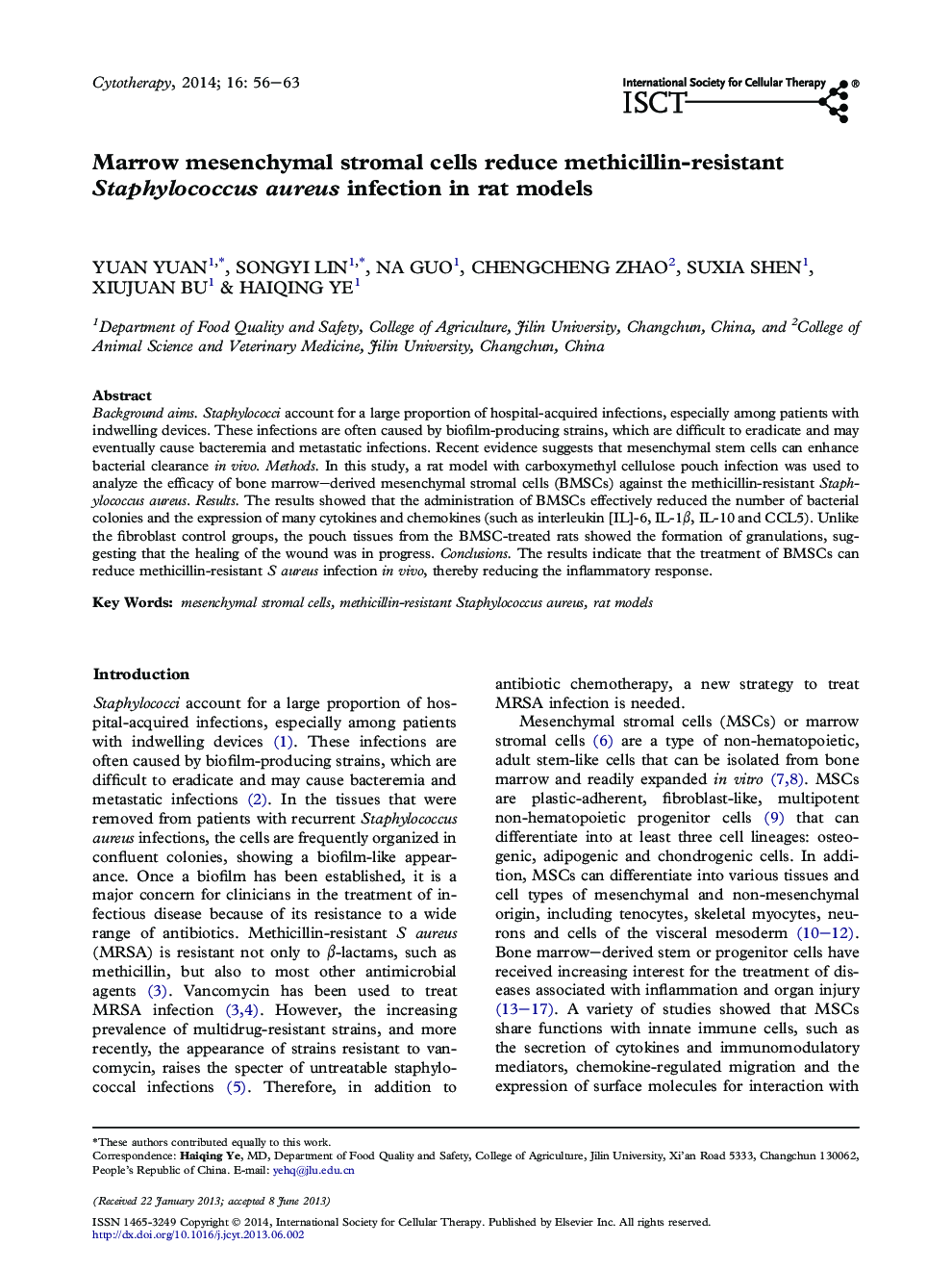| Article ID | Journal | Published Year | Pages | File Type |
|---|---|---|---|---|
| 2172249 | Cytotherapy | 2014 | 8 Pages |
Background aimsStaphylococci account for a large proportion of hospital-acquired infections, especially among patients with indwelling devices. These infections are often caused by biofilm-producing strains, which are difficult to eradicate and may eventually cause bacteremia and metastatic infections. Recent evidence suggests that mesenchymal stem cells can enhance bacterial clearance in vivo.MethodsIn this study, a rat model with carboxymethyl cellulose pouch infection was used to analyze the efficacy of bone marrow–derived mesenchymal stromal cells (BMSCs) against the methicillin-resistant Staphylococcus aureus.ResultsThe results showed that the administration of BMSCs effectively reduced the number of bacterial colonies and the expression of many cytokines and chemokines (such as interleukin [IL]-6, IL-1β, IL-10 and CCL5). Unlike the fibroblast control groups, the pouch tissues from the BMSC-treated rats showed the formation of granulations, suggesting that the healing of the wound was in progress.ConclusionsThe results indicate that the treatment of BMSCs can reduce methicillin-resistant S aureus infection in vivo, thereby reducing the inflammatory response.
